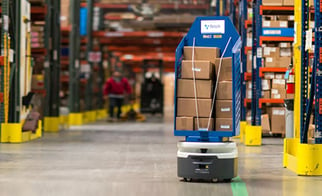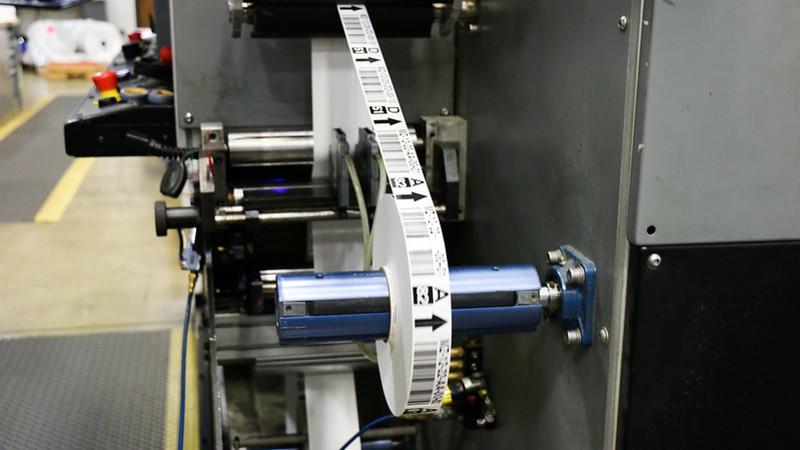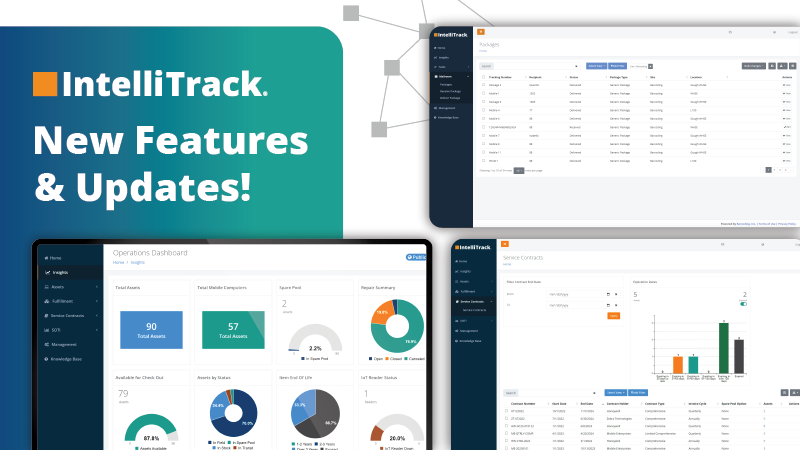Businesses rely on barcode labels for the accuracy, speed, and efficiency they deliver. When a barcode issue arises, all those benefits simply evaporate.
Every failure has consequences, and considering the wide range of industries where barcodes play a critical role, the consequences of a bad barcode label can range from confusion and annoyance to life-threatening chaos.
Consider the ways a faulty label can impact operations in warehousing, logistics, or retail. Now, how about security or healthcare applications?
When it comes to barcode labeling issues, there are errors … and there are catastrophic failures that have the potential to bring business to a standstill while people scramble for a solution. Let’s take a look at all of the above, and explore how your labeling strategy can help you prevent a barcode labeling disaster.
1. Barcode Design and Printing Issues
Many barcode performance problems can be traced directly to design issues, and most of these are a direct result of failure to follow instructions or guidelines. Label designers must pay attention to the basics:
- X-Dimension or mil-spec of the barcode
- Correct ‘Quiet Zone’ (margins) around the barcode
- Symbology
- Contrast between colors of the bars and background.
- Distance a barcode will be scanned from.
- Correct placement (avoid wrapping around corners and consider orientation on cylinders)
- Printing process, environment, and technology
2. Incorrect Barcode Data
Inaccurate information associated with a barcode can cause all kinds of headaches, from labels that simply don’t scan to outright mislabeling of products (and the potentially disastrous cascade of errors that can happen as a result). This is often a case of simple human error—and a solution like BarTender® comes in clutch to prevent these types of mistakes.
Your choice of vendors is important here, too. Compliance with GS1 standards, whether by getting your barcodes directly from GS1 or by working with a trusted vendor partner, ensures that you won’t end up with someone else’s barcode on your products.
3. Incompatible or Poorly Performing Label Materials
The materials you choose for a barcode label matter. They need to be compatible with the product, packaging, and environments—and they need to work together. Consider your requirements for durability; smudge, scratch, chemical, and moisture resistance; exposure to sunlight/UV or extreme temperatures; removability; and more. Better yet, consult with an expert whose lives, eats and breathes barcode labeling. They’ll probably point out a few important factors you didn’t think of on your own.
Should your facestock be paper, polypropylene, or polyester? Do you need permanent adhesive, removable, or high tack? What about your choice of ink and printer?
This is one of those situations that you don’t really notice as long as you get it right. But you sure do notice if it’s wrong: labels can curl, tear, fade, smudge, turn black, fall off, etc.
In short, for your barcode to do its job, your label needs to work, too.
And that brings us to what may be the mother of all barcoding label failures:
4. Failure to Anticipate and Prepare for Supply Chain Challenges
Is it ironic that barcode labeling solutions—and related technologies like RFID tags—play such a vital role in supply chain improvements, and are at the same time vulnerable to sourcing problems due to supply chain disruptions? Maybe. But we’re living in a world where everyday consumers are now aware of the complexity of the supply chain.
Massive and chain-reaction supply chain disruptions have been causing price increases in labeling materials for more than a year. Cargo container pileups, congested ports, driver and worker shortages, spiking fuel prices, freight rate hikes, inflation, rising costs of raw materials, mill shutdowns…if you wanted to come up with a recipe for price increases, these are all the right ingredients.
This brings us back to the importance of the right label materials. What if your go-to facestock is unavailable because the manufacturer ran out of a key material needed to make the release liner? How can you minimize uncertainty when choosing an alternative?
Get Proactive Now to Minimize Supply Chain Impacts
Everyone is feeling the squeeze of rising prices, and there’s little to suggest a change in direction any time soon. The first, best action to take at this time is to look ahead and consult with your expert vendor partner on materials and supplies. After all, your ongoing success is how they measure theirs, so they really do want to help you source the solution that’s best for your business.
Knowing that price increases are inevitable, it pays to look for more effective ways to improve efficiency, productivity, and agility throughout your own operations, too. That means implementing barcoding, labeling, and warehouse management system that follows proven best practices to manage your assets and inventory. When you schedule a free label assessment, our experts will help make sure you're in the best possible position to handle whatever lies ahead. Click below to get started and schedule your free label assessment today.







